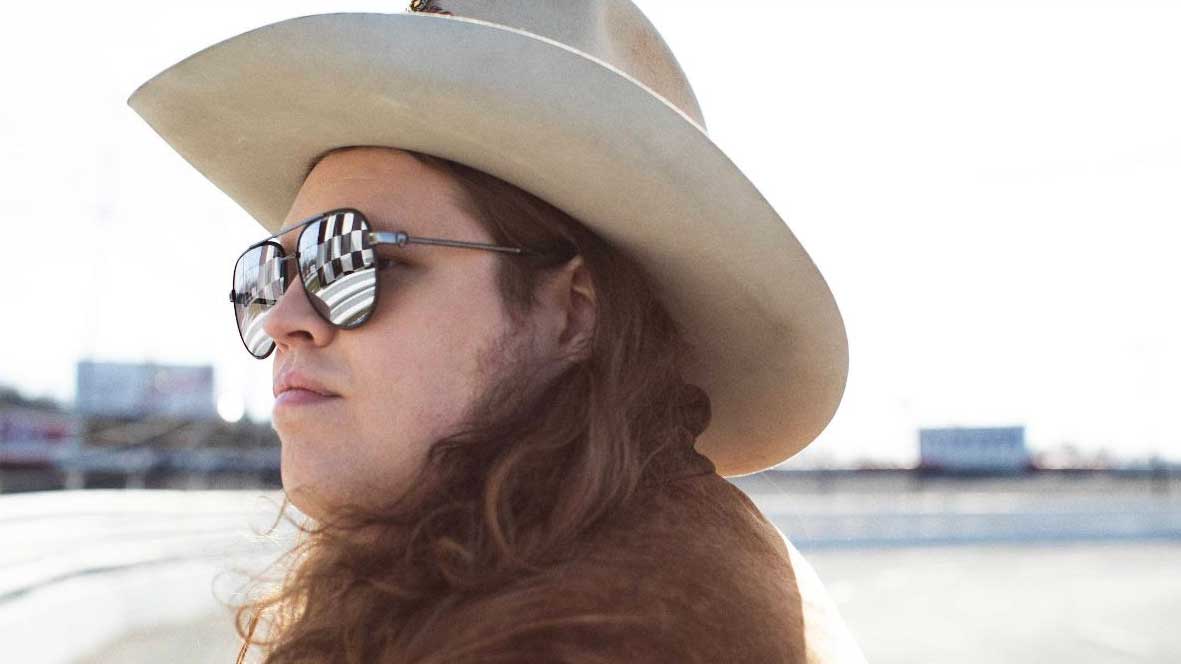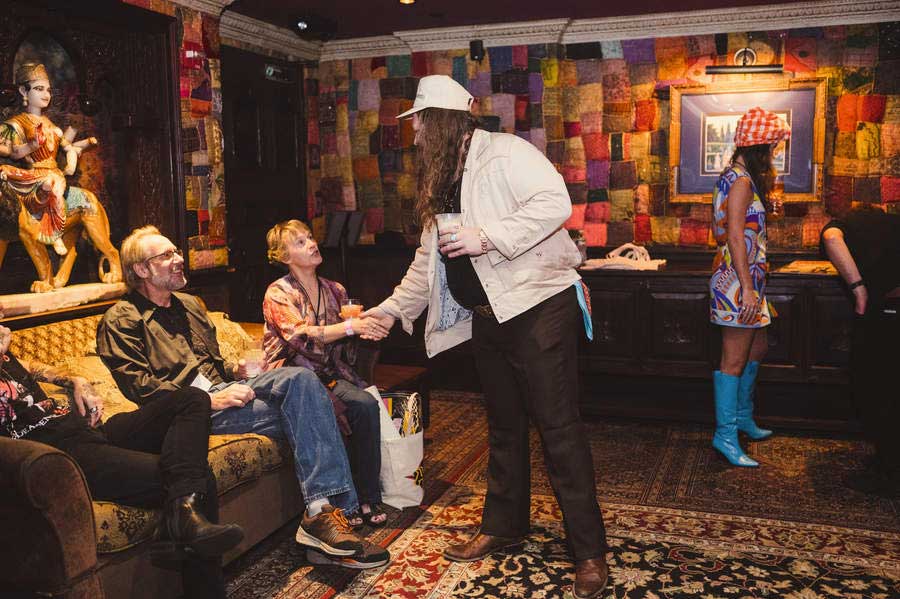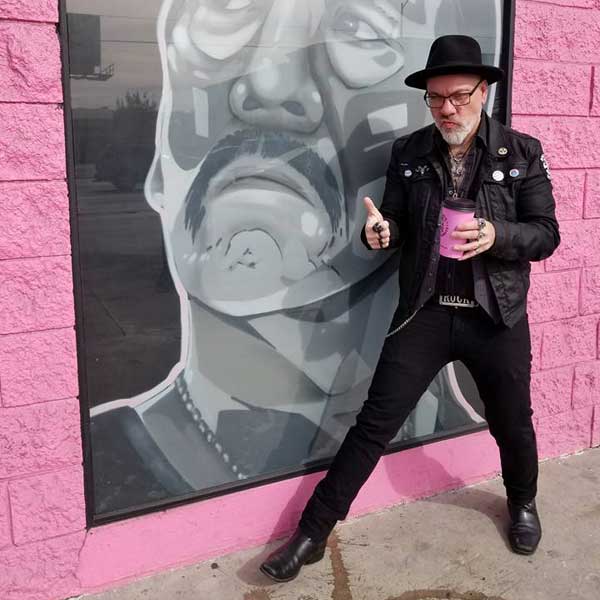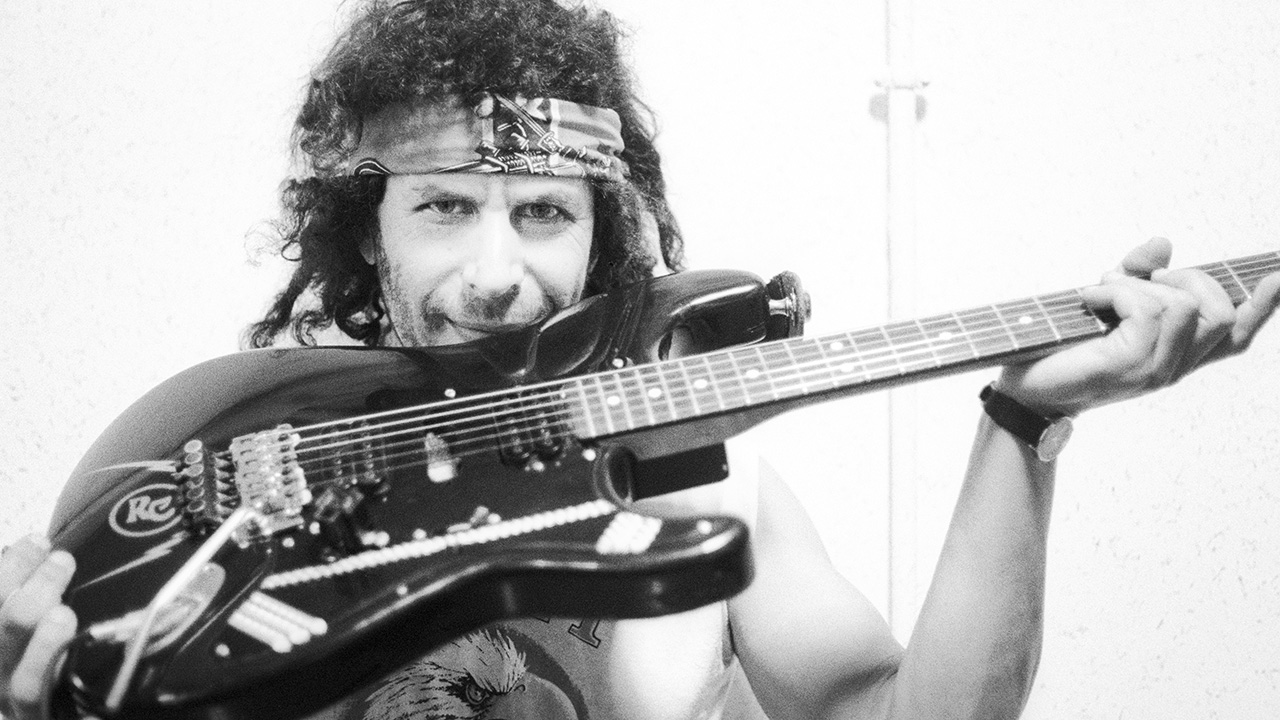Marcus King: If you're worried about the future of rock’n’roll, rest easy
Having trudged down the same sorry, drugs-littered road as some of his heroes, Marcus King has cleaned up his act and is now on the road to major success

Select the newsletters you’d like to receive. Then, add your email to sign up.
You are now subscribed
Your newsletter sign-up was successful
Want to add more newsletters?

Every Friday
Louder
Louder’s weekly newsletter is jam-packed with the team’s personal highlights from the last seven days, including features, breaking news, reviews and tons of juicy exclusives from the world of alternative music.

Every Friday
Classic Rock
The Classic Rock newsletter is an essential read for the discerning rock fan. Every week we bring you the news, reviews and the very best features and interviews from our extensive archive. Written by rock fans for rock fans.

Every Friday
Metal Hammer
For the last four decades Metal Hammer has been the world’s greatest metal magazine. Created by metalheads for metalheads, ‘Hammer takes you behind the scenes, closer to the action, and nearer to the bands that you love the most.

Every Friday
Prog
The Prog newsletter brings you the very best of Prog Magazine and our website, every Friday. We'll deliver you the very latest news from the Prog universe, informative features and archive material from Prog’s impressive vault.
There’s a standard descriptor for Marcus King, and it’s been used consistently since people started writing about him at all: he’s an “old soul”.
I’m not here to break that chain. Sitting across from me in his vintage cowboy gear in some tiny office in some obscure wing of the House Of Blues in Boston, the guitar prodigy doesn’t just look like some long-lost Flying Burrito Brother, he feels as worn-in and well-travelled as his old western shirt. Like he’s been doing this forever. But he’s only 26.
“My old days weren’t even that long ago,” he says with a laugh.
They do stretch a good decade, at least. Born to a musical family in Greenville, South Carolina, King formed his band when he was a teenager, playing the sort of places you might see in the Blues Brothers movie: chicken wire strewn across the stage, rowdy crowds, late nights. You tend to grow up fast in that environment, and to learn on your feet.
“We were playing this gig, it must have been more than ten years ago now,” he remembers, “but we played this gig and they didn’t want to pay us. I took my grandfather’s advice; he was a gigging musician his whole life. He said: ‘If they don’t pay you, you still got to feed your guys. You gotta get paid. So just take their shit and start selling it. Take it to the next city and pawn it.’ So I was like: ‘Look, you ain’t paying us, so I’m gonna take your PA and sell it so I can feed my guys.’
"I was fifteen years old. There was nobody at that gig, so I started taking that PA and loading it into my van. It was a bluff, for sure, and we ended up getting paid. But before that a big bar brawl ensued. A bunch of big guys showed up and there was a bar fight. It was right outside of a dispatch unit in Spartanburg, South Carolina, and the cops showed up in seconds. My drummer at the time got his ankle rolled in the fight, but he didn’t press charges because he had a bunch of weed in his car.”
King laughs at the memory. “I think that’s the craziest show I can think of. I mean, we’ve definitely had some moments.”
Sign up below to get the latest from Classic Rock, plus exclusive special offers, direct to your inbox!

Things have certainly changed since then. Tonight’s gig is sold out. His new album, the Dan Auerbach-produced Young Blood, is soaking up critical praise, landing him on national TV spots, and he’s routinely filling 2,000-seat clubs. Not bad for an album he initially thought might be his last. After a spate of heartbreak, heavy vibes and your typical rock-star descent into hard drugs, King was unsure whether he’d even be around to tour this album.
But it didn’t work out that way. Fearing the same downward spiral into chemical ruin as his rock heroes, he has spent the past couple of years cleaning up his act. His fiance, Briley Hussey, now tours with him and acts as the band’s social director.
“She really provided a lot of stability for me,” King says. “She grounded me.”
As a result, he’s cut back on a lot of rock’n’roll’s more notorious pastimes, as evidenced by the two of us sipping black coffees together, while his band drink beers and noodle around on guitars in the next room.
“This is a sober tour, more or less,” he says. “For me, at least. I’d rather just feel better, you know?”
He says he doesn’t miss the hangovers, nor the anxiety that comes with doing too much of anything.
“Alcohol wasn’t my thing anyway,” he says about his past dalliances with use and abuse. “I was into other stuff.”
The sentence hangs in the air for the moment, but then quickly dissipates. This is not that kind ofstory. Marcus King is not that kind of guy, at least not any more. No one here is, really, as evidenced by the convivial meet-and-greet we attend a few minutes after we finished talking. King says they’ve worked these notoriously cumbersome events out.
“We basically set up at one of the bars in each club and just have a drink with the fans,” he explains. “We do it at five o’clock, like a Happy Hour.”
A less awkward encounter than the usual stiff autograph and photo sessions, then.
“It’s still a little awkward, but it’s a little looser.”

The House Of Blues VIP room is crammed with fans, the majority of them twice the band’s age. There’s a table full of undrunk complimentary margaritas; these guys are not the party-hearty types, at least not at five pm. One guy slides off his cowboy boot and asks King to sign it. He does.
“I just got married in these two weeks ago!” the guy enthuses.
An ex-hippie type gushes about the new songs to bass player Stephen Campbell. “Have you ever heard of the Electric Flag?” the guy asks. “You guys remind me of them.”
Campbell says he hasn’t, but will look them up on Spotify. More hands are shaken and pictures taken. King scans the room with an easy smile. “May we all stay humble,” he says, mostly to himself.
Downstairs the room fills up quickly, and the sold-out audience is bathed in a purple glow by the club’s impressive lighting rig. House Of Blues opened here in 2008, part of an ever-expanding chain that originated down the road in Cambridge. It’s directly across the street from Fenway Park, Boston’s famous baseball field. King and his band visited it earlier today.
“The head groundskeeper invited us over for a tour,” he enthuses. That was a real treat.”
This venue’s address has been the site of many nightclubs and concert halls over the years, including Aerosmith’s short-lived Mama Kin in the 90s, a notorious punk club called Spit in the 80s, and the Boston Tea Party, a 60s-era hotspot that hosted shows by bands and artists including The Stooges, Led Zeppelin and Sly And The Family Stone. This room is storied, to say the least.
It’s also a massive, sprawling space, with three stories, and many bars, balconies and alcoves. And there isn’t a bad seat in the house. The audience is still mostly over 40 and seemingly well-heeled, but there are welcome groups of younger, scruffier fans as well.
Sets by comic Dean Delroy, singer-songwriter Ashland Craft and funky, shag-haired piano player Neal Francis open the show. Francis is a full-tilt scorcher of a performer. Prometheus, from his 2021 album In Plain Sight, is the set’s highlight, building from gritty R&B to sizzling, wildfire sci-fi space-rock. King’s guitarist Drew Smithers joins them for their closer, a blistering Can’t Stop The Rain. On any other night, Francis himself would’ve decimated this place. Bigger things are definitely ahead.
After a brief respite, the main show begins. James Brown’s Payback blares on the sound system as King and his band glide on stage. When they start playing, the first thing you notice is how tight their groove is. Justin Johnson and Chris Spies, his sax player and trumpeter respectively, elevate the band’s sound from retro-bluesy to something gritter, more immediate, more alive. And, you know, King having his own horn section is a sure sign of success.
“I had one from the first show, way before any kind of success,” he said with a laugh when we spoke earlier. “That was part of my business plan – acting like I’m making money, and hoping I eventually will.”
The band lurch into It’s Too Late, a soulful, Stonesy track from new album Young Blood. It’s much more intense live than on the record. If they had a wall of Marshalls behind them, they’d probably sound like AC/DC. But they don’t, they have a wall of Orange amps, so they sound like something else entirely, like the Allman Brothers and ZZ Top, like The Band and Jimi Hendrix. It’s a startlingly vintage sound, a truly primordial, proto-everything roar. The only thing tying this band to today is the sheer weight of King’s playing. I don’t think anybody thought to be this ferocious before. It’s really something to see.
They play early song Virginia. King’s notes sound predestined, his riffs like they were plucked right out of a lightning-struck sky. The song goes on for ever, but it’s a good kind of for ever. Like In-A-Gadda-Da-Vida forever. When we spoke, King mentioned how important improvisation was, and we’re seeing that now.
“There’s kind of a guideline for each show, but improvisational parts we can stretch out,” he said. “Some nights the song might be twenty minutes, sometimes it might be three. Depends on how we’re feeling. Nothing’s set in stone.”

The band rip through another new one, the fire-breathing Hard Working Man. It sounds like Ted Nugent just discovered speed-metal. The band are so relentless, King doesn’t even address the audience much for the first hour. When he does, he assures them they’re in good hands.
“Boston, you’re lookin’ real fine,” he drawls. “We gotta make sure you’re feeling real fine, too.”
The band slip into Beautiful Stranger, a slow shuffle, practically a gospel number, really. It shows off King’s impressive vocal range. It’s also the only real breather the band offer for quite a while. By the time Rescue Me evolves into a rattling psych-metal freak-out, the audience is enthralled, all in. And drunk, finally. Roaming the balconies reveals a kind of bleary-eyed, middle-aged bacchanalia. It’s difficult to pick a highlight when the entire set leaves people slack-jawed, but Good And Gone, another smoker from Youngblood, might be it, a blistering, relentless blues steamroller.
After the standard rock’n’roll bullshit of a drum solo and the obligatory band introductions, we get a gorgeous, massive, tear-gushing Wildflowers And Wine that masterfully mutates into soul ballad standard When A Man Loves A Woman. Set closer Lie Lie Lie is like some long-lost Thin Lizzy song, a chugging, barreling force of nature, more a relentless gravitational force than anything else.
There is, of course, an encore. There’s no way this audience is leaving yet. King returns on his own with an acoustic guitar to pluck out a sad, dusty, beautiful Goodbye Carolina. His band, joined by Neal Francis on piano, return for a rousing cover of The Beatles’ Hey Bulldog. And just to make sure that no brains in the venue are left unscrambled, on the climactic blues burner The Well they open every cylinder
The remarkable thing about all this is that it’s difficult to think of a person who wouldn’t like King’s music. It’s soul, it’s blues, it’s southern, it’s hard rock. The dude truly contains multitudes.
“I don’t care what you call it,” he told me. “I just like loud rock’n’roll guitar.”
A reminder: Marcus King is 26. He will outlive his heroes, and possibly better them. He’ll likely outlive the vast majority of this magazine’s readership as well. So if you’ve ever spent a sweaty, sleepless night, tossing and turning, worrying about the future of rock’n’roll, rest easy. It’s in good hands with this kid. He’s taken all the good stuff, made it his own, and run with it.
As the house lights go on, it takes a minute or two before everyone starts shuffling out. Like they’re still stunned, maybe. Birth of a legend, right here.
Hard Working Man is available from the Marcus King webstore. He tours Europe in April. Full dates.
Classic Rock contributor since 2003. Twenty Five years in music industry (40 if you count teenage xerox fanzines). Bylines for Metal Hammer, Decibel. AOR, Hitlist, Carbon 14, The Noise, Boston Phoenix, and spurious publications of increasing obscurity. Award-winning television producer, radio host, and podcaster. Voted “Best Rock Critic” in Boston twice. Last time was 2002, but still. Has been in over four music videos. True story.

